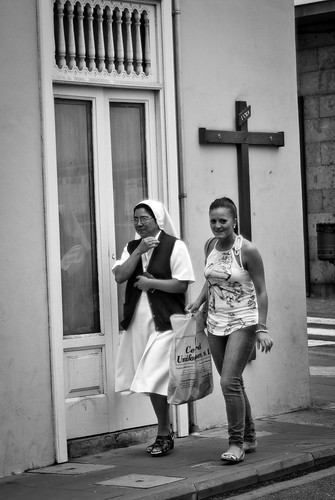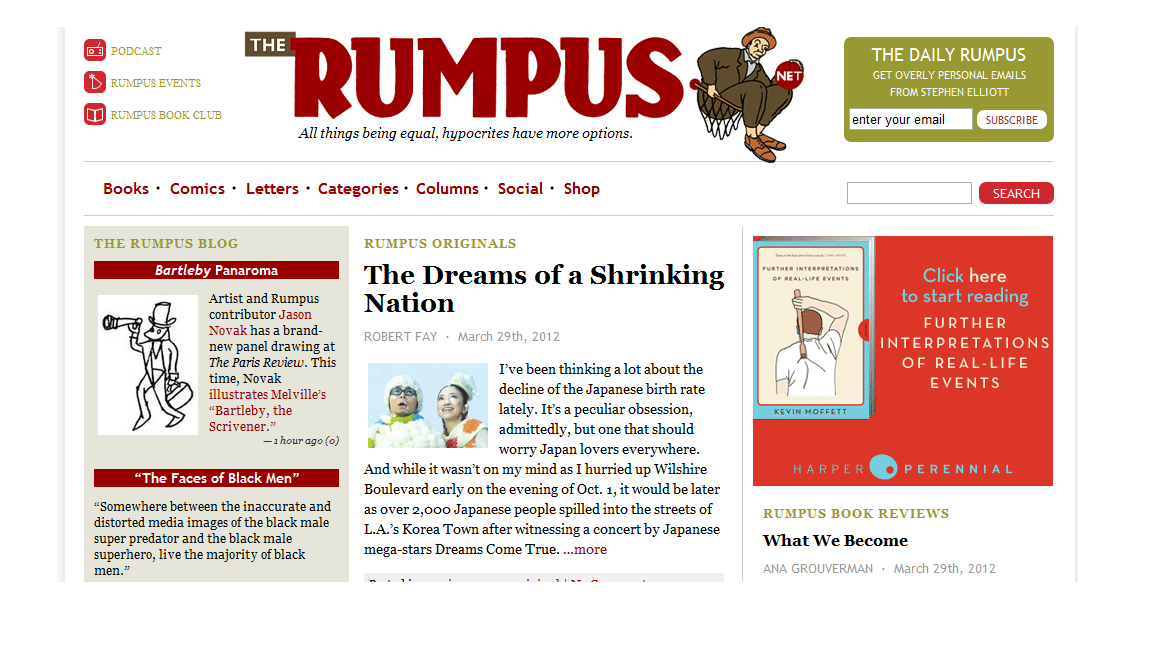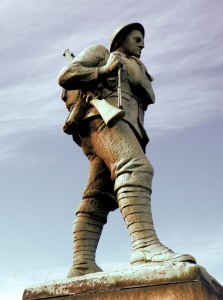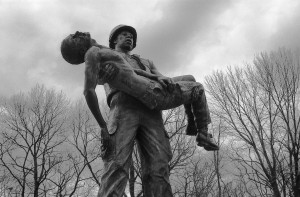I was honored that the website Vol. 1 Brooklyn included a link to my new essay in The Rumpus. It was featured in their Morning Bites roundup. Check it out.
My New Essay in The Rumpus
I have a piece up at The Rumpus today titled “The Dreams of a Shrinking Nation” which is both an essay on the Japanese mega-pop band Dreams Comes True (my wife is a big fan) as well as a light-hearted look at Japan’s current demographic problems. The occasion for the essay was an Oct. 1, 2011 appearance by Dreams Come True at the Wiltern Theater in Los Angeles.
The band typically plays soccer stadiums in Japan and so the opportunity for Japanese fans in California to see the band in an intimate setting was a big deal. I had a lot of fun writing the essay.
The Odyssey of Anti-War Literature
I recently finished re-reading Homer’s The Iliad after many years. I was struck by a number of things, but primarily how Homer depicted war as both brutal and meaningful. Not only did he not sugar-coat bronze-age combat, he actually went into gruesome detail about how spears and swords devastate the human body. His detailed knowledge of combat trauma made me suspect Homer might have been a soldier in his day or perhaps a battle-field doctor.
There is also a heroic aspect to Homer’s depiction of the Trojan War—not surprising since it is a heroic epic after all—but he handles it in a nuanced and complex way: soldiers are courageous, but they are also cowardly and sometimes unsure of the war’s validity. Under the strain of 10 years of combat, Greek and Trojan soldiers grapple with meaningful questions of conscience, self-sacrifice, grief, loyalty and mercy on the battlefield.
With The Iliad in mind, I came across an article in The New Criterion by Thomas Bruscino titled “The New Old Lie.” Bruscino believes that the ongoing effort among artists “to insist that war is always meaningless, is not art. It is the new old lie, and an ugly one at that.”
Since the end of Word War I, war literature has unquestionably been anti-war in its aims. He finds the roots of this trend in the carnage of the American Civil War. He quotes critic Benjamin Schwarz, who recently wrote of Ambrose Bierce’s Civil War writings. Schwarz wrote:
“Emerging from the charnel house, Bierce shunned any effort to invest the butchery with meaning. . . . For him the war was nothing more—could be nothing more—than a meaningless and murderous slaughter, devoid of virtue or purpose.”
The belief that war is always a meaningless farce is echoed by the great critic Edmund Wilson.
“I am trying to disregard the pretensions of moral superiority with which we have tempted to clothe (World War I). . . . I want to suggest that . . . we ought to stop talking in terms of defending and liberating the victims of ‘oppressors’ and ‘criminals,’ our old patter of ‘right’ and ‘wrong’ and punishing the guilty party.”
Two of the anti-war books Bruscino alludes to in his article are works I consider modern masterpieces: Dispatches by Michael Herr and The Things They Carried by Tim O’Brien.
Bruscino makes it clear his intention is not to discredit the merit of anti-war art, but simply to contest the idea that war can only be depicted as a mindless slaughter, as if there were no legitimate differences between nations, political ideologies or governing systems, and therefore nothing worth fighting for. If this is true, intervening in a country like Syria, for example, and combating a dictatorship would also be meaningless, which is another way of saying it doesn’t matter whether the Syrian regime crushes the civilian opposition or if the regime is toppled—it’s all meaningless. Let’s hope not.
On the road – Official trailer – (HD 1080p) by MK2diffusion
William Burroughs got it right when he wrote Jack Kerouac “opened a million coffee shops and sold a million pairs of Levis.” Kerouac and his novel On The Road primed the culture for the Beats and later the ascension of the hippies and the 1960s counterculture. The actual literary influence of Kerouac, and the Beats in general, is still open to debate.I always thought their lives were more noteworthy than their books, although Kerouac’s lyrical abilities and his great sensitivity to the American landscape and the imagination of its people was unique.
Director Francis Ford Coppola bought the rights to the novel more than 40 years ago and it has been a decades-long struggle to get the movie produced.
And while the publication and critical reception of On the Road was a major coup for Kerouac, he was already in steep decline by 1957 from heavy drinking.
Here is Kerouac reading from On the Road for the Steve Allen Show in 1959. In this clip you get a sense of his natural shyness as well as the gloominess he suffered from at the end of his life.
As The Novel Lay Dying
Lately I’ve developed a tenderness for essays speculating about the “death of the novel,” or that inspiring sub-genre, “why write novels at all?” I suspect they are proof that the form still has a modicum of relevance; the very existence of such essays proves there is still something left to kill off. Contrast this with say, poetry, which is so entirely deceased (I’m sorry if this offends the 32 Americans who buy new poetry volumes each year) that nobody would even considering announcing its death.
The latest backhand defense of the novel is Roger Kimball’s essay “The Great American Novel: Will There Ever be Another?” which argues that both the atomization of American culture and our lack of shared cultural assumptions makes it unlikely the novel will ever return to its former prominence.
Right from the start of his essay, Kimball admits he is less than enthusiastic about contemporary fiction:
“I read as few contemporary novels as possible, partly (here we get into cause and effect) because most of the novels that get noticed today (like most of the visual art that gets the Establishment’s nod) should be filed under the rubric ‘ephemera,’ and often pretty nasty ephemera at that. I do not, you may be pleased to read, propose to parade before you a list of those exercises in evanescence, self-parody, and general ickiness that constitute so much that congregates under the label of American fiction these days.”
I’m tempted to agree that there are cartloads of forgettable novels coming out every day, however I don’t read enough contemporary fiction to make such a sweeping statement, and I do occasionaly encounter contemporary novels that have a shot at immortality.
In a culture without common moral assumptions, Kimball rightly believes there are no standards to subvert, critique or even support. In short, it never feels like there is anything at stake. As a a consequence, Kimball isn’t sure that we’d recognize our great American novelists if they were writing today—true enough—but it’s worth noting that Melville was not appreciated in his own time (it was only in the early 20th Century that critics resurrected Moby Dick and enthroned it as a canonical book):
“My point is that even if a new Melville or Twain, Faulkner or Fitzgerald were to appear in our midst, his work would fail to achieve the critical traction and existential weight of those earlier masters. We lack the requisite community of readers, and the ambient shared cultural assumptions, to provide what we might call the responsorial friction that underwrites the traction of publicly acknowledged significance.”
He goes on to say:
“The novel in its highest forms requires a certain level of cultural definiteness and identity against which it can perform its magic. The diffusion or dispersion of culture brings with it a diffusion of manners and erosion of shared moral assumptions…The chief virtue of a well-defined cultural tradition for a novelist (for any artist) is not that it be beneficent but that it be widely acknowledged and authoritative.”
Right now, in an American civilization where there is no agreement on which wars are worth fighting (or not fighting), what marriage is (and isn’t) and whether there is such a thing as objective beauty or even objective truth for that matter—the novel may be doomed, or it may just freeze up and go the way of of “classical” music.
There is always new symphonic and chamber music being written (and some important pieces at that), but listeners restrict their listening habits to a few choice masters from a few well-trodden epochs (i.e., the Baroque, Classical and Romantic periods) and thereby relegate modern compositions to a few lonely hours on Sunday afternoon public radio shows hosted by gentlemanly middle-aged men with beards and spectacles.
A New Inquiry into the Habit
The New Inquiry dubs itself as a space to “enrich cultural and public life.” The site has received a lot of big-time attention in its short run and so far it seems to merit the hype. The editors, to my great surprise, recently featured a thoughtful interview with an Anglican nun named Sister Nancy Ruth. The interview touches upon issues of femininity, beauty, modesty and fashion (the habit) from a Christian religious point of view.
The editors wisely understand that a discussion space that either ignores, or mocks religious faith, is walling itself and its readers off from a fundamental part of what it means to be human for millions of people today. Editor-in-Chief Rachel Rosenfelt was clear in a recent interview with the LA Review of Books that what matters is good writing and not any particular agenda in the culture wars:
“The guiding principle in the editorial process is: Is this boring? Is this safe? If the answer is yes, then it’s not for us. We’re not offering a platform for any one political group to rally around.”

![]() photo credit: mademoiselle suzanne
photo credit: mademoiselle suzanne



